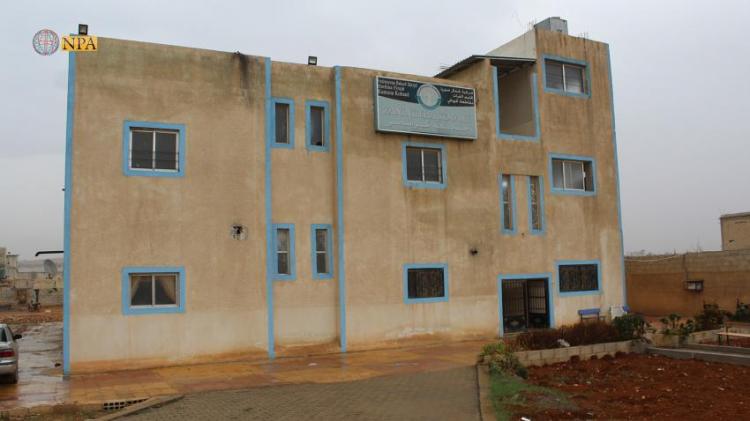Turkish military invasion of north-eastern Syria increasing difficulties facing the University of Kobani
Kobani – North-Press Agency
Fattah Issa – Fayad Muhammad
The University of Kobani started its academic year 2019-2020 at the beginning of this week amid difficulties facing the students and the administration board of the university, of which the Turkish military operation in northeastern Syria has made it more challenging. “The new academic year was delayed, due to the Turkish invasion of areas in north and eastern Syria," Dr. Kamal Basrawi, the co-president of Kobani University, told North-Press.
Lack of staff
Dr. Basrawi pointed out that the difficulties of this year are related to the capacity of classrooms and auditoriums that cannot accommodate more than 24 students, thus, the students are distributed to additional classrooms, which requires more staff, while the university suffers mainly from the difficulty of getting teaching personnel due to brain drain. He noted that the teaching staff were coming, in the previous years, from Ras Al Ain (Sere-Kaniye), Tal Abyad (Gre Spi), Raqqa and Manbij, but the Turkish military operation was an impediment to the completion of the educational process.
Lack of practical lessons
"There are few practical lessons as there are no laboratories to conduct experiments, and there are no special equipment for the Physics and Chemistry departments," said Rawan Hami, a third-year physics student at the university. Hami called on the concerned authorities to help them secure the requirements of students and laboratories, in addition to securing a large and spacious building.
Few options
For her part, Wahida Sheikho, a first year student at the Medical Laboratory Department said that the options for the students were few, as the colleges of "Pharmacy, Medicine, English and Engineering" are not available in Kobani university, which forces students to go to Qamishli to study at Rojava University. “Many families do not allow their children to go to distant universities, especially for girls, because of the Turkish war against north-eastern Syria, and its repercussions on the internal situation of the areas in the region. If these specialties were available at Kobani University, that would have made it easier for students to study," she added.
Finding a solution
Regarding the problem of some of the students who were admitted to Rojava University in al-Jazira region, and are unable to enroll in their colleges because of the recent events upon the Turkish military attack on northern Syria, the head of the university explained that there is a large number of students who are visiting the university in order to move to colleges and departments which are available in the university of Kobani.
He added that they inform the general coordinator of universities in north-eastern Syria to find a solution that satisfies students and their families, and provides them with seats at Kobani University, or in the institutes of the city.
University faculties and student numbers
It is worth mentioning that Kobani University was founded on September 30, 2017, where only two faculties were opened, namely the Faculty of Basic Sciences (Physics, Chemistry and Mathematics) and the Faculty of Arts (Department of Language and Kurdish Literature). Currently, the University of Kobani has a faculty of Basic Sciences, which includes the departments of "Physics, Chemistry, Mathematics and Natural Sciences", in addition to a new department opened this year, the Department of Medical Laboratories, as the duration of study will only be for two years.
There are currently 313 students in Kobani University, of whom 133 are in the first year and 180 in the second and third years. Free dormitories are provided for students from Kobani villages and other areas. While the number of teaching staff in the university in all departments and colleges is about 28 lecturers.
The Turkish military invasion in areas of north-eastern Syria has had a great negative impact on the educational terms, lied in the delay of opening universities and the displacement of most of teaching staff and students to safer areas, in addition to turning a number of schools in the region into shelters for the displaced people.

